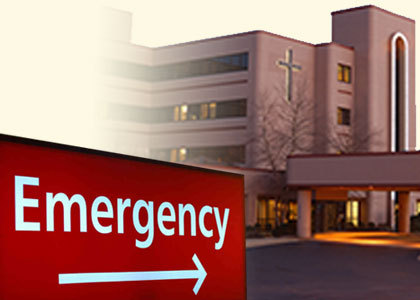Medical emergencies don’t ring a warning bell before they arrive. They catch you off-guard when you least expect them. Even with the help of insurance, medical bills can be quite overwhelming. And as much as you’d like to ignore your payment date, you cannot; if left unpaid, medical bills can wreak havoc on your credit and taint your rating. According to a 2014 study by the Consumer Financial Protection Bureau (CFPB), at least one unpaid medical bill appears in every five credit reports, negatively affecting the credit scores of 43 million Americans.
In addition to an unexpected medical condition or crisis, you also have to deal with the stress of paying huge bills. What can you do? Some choose to pay-off the bills with their credit cards as a way of alleviating the stressful calls from the doctor’s office and collections. While this may seem to be the easiest way out of debt, this can further prolong your financial burden because any balance on your credit card is likely to lead you through a never-ending debt cycle with high interest rates. It may take a lifetime to pay off these debts.
Personal Loan for Medical Bills
A more effective and affordable way to handle medical expenses is through a personal loan. Several leading lenders offer these unsecured loans to consumers with a repayment period of 2-5 years. They can be used for any purpose, including paying for medical treatment. However, before you decide to take out a personal loan to pay off your medical bills, you should consider the pros and cons:
Pros
- Since personal loans are unsecured loans, you need no collateral. They are also easy to obtain with less paperwork.
- Interest rates can be as low as 5.99%. This is much lower compared to the interest rates on credit cards.
- Unlike credit card debts, these loans come with a proper repayment schedule, making it easier to pay back your medical debt in easy monthly installments.
- Personal loans are characterized by quick approval. Most lenders approve and release funds in as little as one business day. This makes personal loans ideal for medical emergencies.
- Loan amounts range from $1,000 to $50,000.
- They have no impact on your credit score.Unlike unpaid medical bills or credit card debts, these loans will not weaken your financial health with an unnecessary and potentially damaging hit to your credit.
Cons
- No loan comes without interest. Even if you take a personal loan to meet your medical expenses, you will still have to pay interest on the amount you borrow.
- If your medical bill is very high, a personal loan may not be sufficient to pay for the entire amount unsecured personal loans cater to smaller financial needs within the limit of $50,000.
- You need a decent credit score to be able to utilize a personal loan. Although some lenders may give you a loan even with a poor credit score, your score will affect the interest rate that will be charged on your loan.
These are several factors that are important when considering whether to take out a personal loan to help pay for medical expenses. Both your current financial needs and your long-term credit should be considered when deciding how to manage your financial health.

